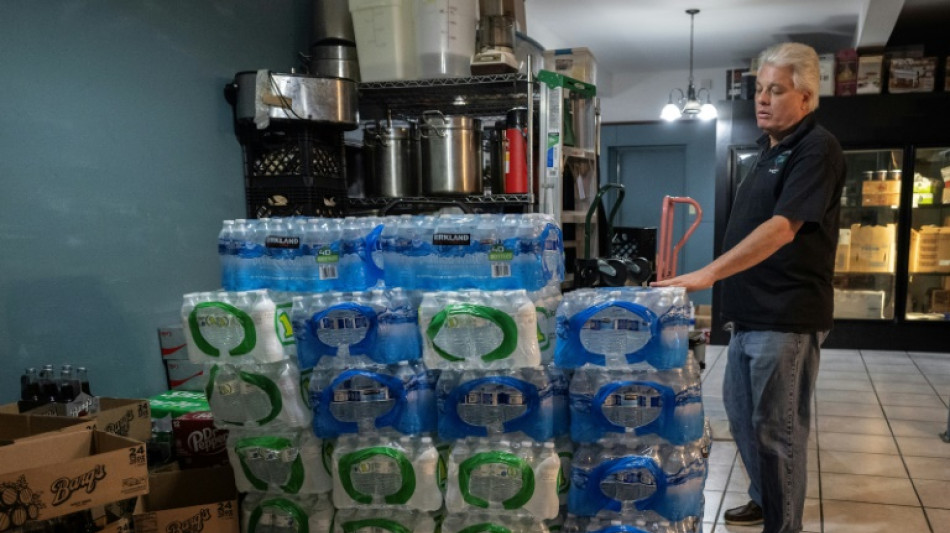
In Louisiana, salt water in the Mississippi... and faucets

In southern Louisiana, where most things are surrounded by water, residents are being forced to buy bottled water to drink, bathe and even give to their pets.
Salt water is creeping up the drought-hit Mississippi River from the Gulf of Mexico, and residents of the delta basin are feeling forgotten.
"Our water started having a very funny taste" in May, explains 68-year-old Cathy Vodopija.
"When you wash your clothes, it’s like bleached whatever you were washing -- without putting bleach in it."
For the second straight year, water levels in the mighty river that cuts the United States in two have hit new lows -- and the fresh water cannot prevent the salt water from flowing into the river.
Byron Marinovich, who owns the Black Velvet Oyster Bar and Grill in Buras, had to disable the restaurant's ice machine. The salt was making the cubes white, "which is very pretty" -- but unappetizing for customers.
At home, after taking a shower in the salty water, Marinovich finishes the daily ritual with bottled water.
"You pour it on your head and you rinse all off with it; if not, you're going to be sticky all day," he warns.
For Vodopija, authorities "didn't care about what was going on with us" until the problem was detected farther upriver.
On September 20, a special barrier built on the river to limit the influx of salt water was overtopped, heightening fears for the safety of drinking water in the greater New Orleans area, which is home to 1.2 million people.
The US Army Corps of Engineers, which is tasked with ensuring navigation on the waterway, decided to erect the underwater sill, while also infusing drinking water supplies with fresh water in the southern part of the river delta basin.
Desalinization units have been set up.
After those efforts, Marinovich says, "the water is getting better," but he still couldn't use it at the restaurant to prepare anything -- his chefs are making gumbo, the local specialty, with bottled water.
Some residents say they have little faith in the water tests done by authorities.
That distrust was evident last week at a spirited public meeting with local officials about the situation, at which it was announced that restrictions on drinking water would be lifted.
"It got really ugly for a while," Marinovich said.
Gaynel Bayham, a pastor and teacher who has organized bottled water distribution at her church for months, said she was frustrated.
"We get left behind," she said. "We have to fight for everything to be able to ... survive down here with certain basic needs."
D.Vanacore--PV
